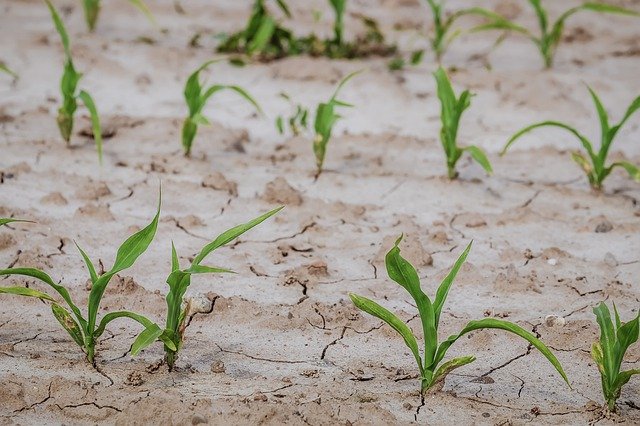Around 19 million people in Sub-Saharan Africa are threatened by severe food shortages, with over four million people currently malnourished. There are a number of factors which contribute to this food insecurity, including rapid population growth, poor infrastructure, weak governance, recurrent conflict, environmental degradation, low food production and a high dependence on rain-fed agriculture. Importantly though, the weather has a big effect on all of this, and the area often suffers extremes leading to both flooding and droughts.
Turning scientific advances into practical solutions for African communities has been one of the main aims of the Africa Climate Exchange (AfClix), a knowledge transfer project to facilitate the exchange of climate science and adaptation knowledge. Research is enhancing our understanding of African weather and climate, yet the impact of these advances on real people’s lives in Africa is often very limited. This is mainly due to communication gaps and barriers; without the mechanisms in place for effective dialogue, the latest climate science is not getting through to help inform policy.
Since the end of 2011, the Africa Climate Exchange has been working in Sub-Saharan African countries to explore how science can best inform climate-related policy for improving food security. Much of this initial phase has been focussed on mapping existing institutional, socio-cultural and economic mechanisms at local, national and international levels to evaluate opportunities and bottlenecks along the climate information chain in each country.
The science embedded within the partnerships and collaborations AfClix is involved in includes: scientific tools to increase understanding of climate change and to help coordinate an effective response to its impacts, for example land-surface modelling of climate change impacts on sugar cane yield in Sudan; development of early warning systems coupled with regional monitoring; development of the research basis for sub-seasonal/seasonal/inter-annual weather and climate prediction, with an orientation towards the approach that will be needed at the national, regional, and multi-national levels to achieve the desired goals and sustain climate services initiatives.
The projects supported by AfClix are unique in that they combine meteorological, agricultural, hydrological and statistical modelling skills, together with socio-economic modelling, science communications and decision-making evaluations that can work at the science-policy interface and thus make a significant impact on the African ground.
Impact
The Africa Climate Exchange has generated impact at individual, community, institutional and governmental scales, by building relationships, creating space for dialogue, and supporting the appropriate application of scientific learning to anticipate and promote resilience. It connects scientists together with humanitarian and development decision-makers and government policy makers, to address questions of mutual interest surrounding the issue of food insecurity. These include seasonal forecasting, evaluation of indigenous knowledge, and approaches to inform decision-making when faced with uncertainty. In this way, AfClix provides a mechanism of building relationships, understanding, and dialogue.
The work AfClix does is making a difference because it helps to match ground-based needs with grassroots solutions aimed at tackling climate vulnerability associated with uncertainty, and can demonstrate the benefits of weather and climate information to in-country and UK policymakers. Multiple interdisciplinary collaborations have been spawned through AfClix connecting individuals and groups and overcoming communication barriers. For example, AfClix has been engaged with developing and submitting 11 grant proposals between January 2012 and April 2013: three of those as Principle Investigator, six as Co-Investigator, and two as Research Partner. All collaborations are contributing towards the long-term aim to promote resilience in rural communities in Sub-Saharan Africa through locally relevant adaptation strategies informed by the latest climate science.
Examples of the more measurable impacts of AfClix are wide ranging, and due to the targeted nature of the work, can best be described in a country-specific manner. Some specific examples are described below and they include examples of future impact also, as many of the projects are on-going; this list of examples is by no means exhaustive, but gives a flavour of some of the work that AfClix is involved with:
The Africa Climate Exchange: Sudan
The Africa Climate Exchange: Senegal
The Africa Climate Exchange: Niger
The Africa Climate Exchange: Tanzania
Funding
AfClix is part-funded through a NERC Knowledge Exchange Fellowship, and additional funding for has been provided by the National Centre for Atmospheric Science (Climate Directorate), the Grantham Institute for Climate Change, and the Walker Institute for Climate System Research. Due to the nature of its work, AfClix partners with a range of other organisations and individuals to help achieve its goals.
Research led by Dr Ros Cornforth
First published: June 2015
Download the full case study

